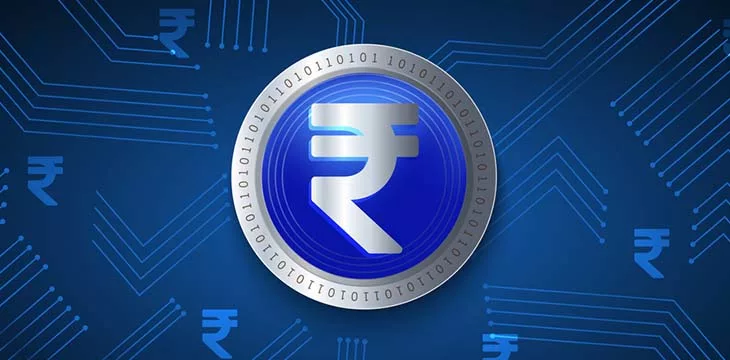|
Getting your Trinity Audio player ready...
|
Financial institutions in India are launching a series of incentives to trigger greater transaction volumes for the digital rupee ahead of the target set by the central bank.
Per a Reuters report, commercial banks are turning to cashback and reward points to convince customers to make more central bank digital currency (CBDC) transactions during the pilot phase. Reuters cited three unnamed sources in its report, noting that leading Indian lenders have launched their own versions of incentives.
India has been experimenting with retail CBDCs since the latter part of 2022, with the Reserve Bank of India (RBI) unveiling a target of 1 million digital rupee transactions before the end of 2023. With daily transaction volumes stuck around the 25,000 mark, commercial banks participating in the pilot program are exploring several options to meet the RBI’s target.
India’s largest lender HDFC Bank confirmed that it has lined up a number of solutions to speed up adoption levels for the digital rupee but failed to outline its specific strategy. Other participants, including UnionBank, ICICI, IDFC, and Yes Bank, may be rolling out reward points for every retail CBDC transaction for customers in the coming weeks, according to the report.
The points will be redeemable for mobile recharges, cashback, and for paying highway tolls, but the duration of the incentives remains unclear. One source remarks that the promotions will be “time-bound” to trigger higher adoption metrics for the digital rupee in the short-term.
The incentives are funded entirely by commercial banks, with analysts noting that short-term successes could lead to the RBI supporting the initiatives. One executive at a commercial bank suggests that the central bank could offer a “clear business proposal” to lenders to keep the incentives running till 2024.
Increasing the daily transaction count of the digital rupee is a primary goal for the RBI, with the central bank unveiling a blueprint in July to achieve its target. RBI Deputy Governor T Rabi Sankar disclosed that the digital rupee will prioritize user privacy and cross-border functionalities to onboard more users.
The pilot will also expand the number of retail use cases across several industries, with a proposed expansion to more Indian cities expected to jolt to trigger greater adoption levels. Despite the frantic rush, the RBI says it will proceed cautiously to avoid upsetting the balance of its payment ecosystem.
UPI could be the game-changer
Indian commercial banks have integrated the Unified Payments Interface (UPI) with the digital rupee, allowing interoperability between payment options. UPI is India’s instant payment solution with over 300 million active users and 150 million merchants.
Yes Bank, one of the pioneers of the integration, noted that the move could be vital in introducing the digital rupee to a new class of users while promoting a seamless transaction experience.
“The integration of UPI interoperability in our CBDC app is testament to our effort at redefining the customer’s digital transaction journey,” said Ajay Rajan, head of digital and transaction banking at YES Bank. “The transition to an interoperable CBDC platform holds the promise of seamless, efficient, and broader transactional capabilities for YES Bank customers, across individuals and merchants.”
To learn more about central bank digital currencies and some of the design decisions that need to be considered when creating and launching it, read nChain’s CBDC playbook.
Watch: CBDCs are more than just digital money

 08-10-2025
08-10-2025 





